Not having the odd £100,000 to spare, I had never before joined the world’s richest owners and their bloodstock agents at Tattersalls yearling sales. It was my loss. Sheikhs in tracksuits and princes in flat caps mingle with ruddy-faced, padded-jacket consignors. In the sales ring, auctioneers rattle through their machinegun patter: ‘What do you want to get her away?…Here’s a wonderful chance to buy into this family who rarely come up for auction, do I have 100,000?…280,000 will seal the deal…he goes right-handed now at 750,000, any more outside?…The hammer’s up, 280,000 will seal the deal.’ They work through 22 lots an hour (at an average price this year for the Book One sale of 207,501), and all figures are in guineas, not pounds. But with buyers from 50 different countries there is high-tech too: the prices reached are simultaneously flashed up in dollars, euros, Japanese yen and Hong Kong dollars. Less high-tech but equally neatly, a Tattersalls employee dashes into the sale ring with a broom between lots, removing equine deposits with a Wimbledon ballboy’s dexterity.
There is John Ferguson, Sheikh Mohammed’s bloodstock adviser, paying 650,000 for a Dubawi colt without blinking an eyelid. There is John Warren, the Queen’s racing adviser, hunched in a green anorak checking through the Highclere syndicates short list with their supremo Harry Herbert.
Led around the parade ring outside, number stickers on their rumps, are the young blue-bloods of the breeding industry awaiting their turn. They are already both beautiful and athletic. Many of them will meet again in a year or so as finely honed professionals contesting major prizes on the racecourse. Later on, bright hopes dimmed, some will finish up running in selling hurdles at Uttoxeter. For the moment, some whinnying nervously, they look like wide-eyed new boys and girls on the first day at boarding school.
It takes time to become accustomed to the sums involved: for most of the players here recessions are irrelevant. On day one of the sale it was Ireland 1–Qatar 0. M.V. Magnier, son of the Coolmore chief John Magnier, hushed the normal chatter around the ring by beating off Sheikh Fahad al Thani to buy a Galileo colt for 3.6 million guineas, a new European record. On day two, Qatar hit back, making it 1–1 when Sheikh Fahad’s cousin Sheikh Joaan al Thani, through his agent Nicolas de Watrigant, paid a world-record 5 million guineas for a Galileo-sired sister to the Oaks winner Was. The year before they had bought her sister for 1.5 million guineas. ‘She has everything and we didn’t want to miss her,’ said the agent.
Never mind bets struck on the racecourse: these are the true gamblers. So many things can go wrong even before a horse gets to the track: impeccable breeding doesn’t offer guarantees, only a reasonable hope of success. The buyers at these sales will have had their would-be purchases ‘vetted’ and X-rayed to ensure physical normality but they cannot look into a yearling’s mind. The most expensive purchase the day I attended was the 850,000 paid by the agent Charlie Gordon-Watson for a colt by the top sire Oasis Dream out of Dar Re Mi. He could be wonderful. Dar Re Mi was a fine mare who won three Group Ones. But this was her first foal.
‘Statistically,’ says Tattersalls director Jimmy George, ‘you have a higher chance of buying a Group One winner here than at any other sale in Europe.’ And with American horses allowed to run on medication, Europe has one trump card: ‘There is a huge appetite from outside wanting to get involved with racing at the highest level. People look at British racing and like what they see because it is medication-free.’
Syndicate chiefs like Harry Herbert, who had bought seven horses in the Book One sale, look for emerging new sires: he favours the athletic progeny of Lope de Vega and sees good value in the stock of Invincible Spirit, Shamardal and Lawman. But for a new Bermuda-based syndicate he was seeking two horses at about the £250,000 mark and had paid around that for an Arch colt that will probably go to be trained by Sir Michael Stoute. John Warren, he said, would have seen 600 yearlings before the sale and know them intimately. With syndicate members of varied budgets and trainers of various aptitudes, stickers on the Highclere board were starting to form a pattern. ‘John puts the pieces of the jigsaw together for us.’
For owners and trainers with smaller budgets things aren’t so easy. ‘Bought anything good?’ I asked trainer Jamie Osborne. ‘Just bottom fishing, Robin,’ he replied. But it was Jamie who explained why it is a good time to be breeding at the top level. ‘What’s changed is the advent of third — and fourth — players. While there was a stand-off between Coolmore and Darley, one lot were not going to buy a Galileo, the others were not going to buy a Dubawi. The Qataris come without prejudice against any particular sire.’ Sheikh Fahad and Sheikh Joaan, seeking to build a Qatari breeding industry, are influencing every aspect of racing.
Got something to add? Join the discussion and comment below.
Get 10 issues for just $10
Subscribe to The Spectator Australia today for the next 10 magazine issues, plus full online access, for just $10.

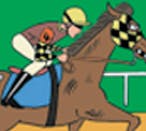

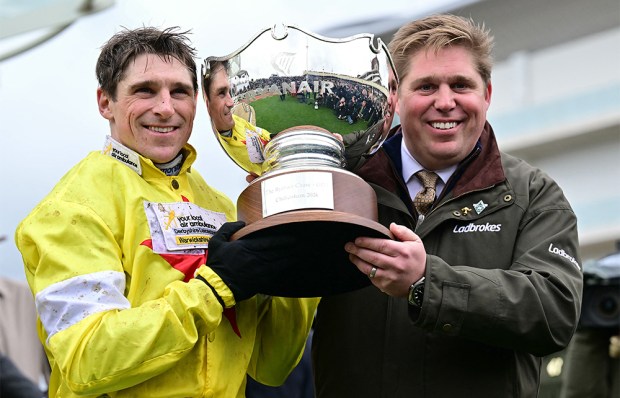
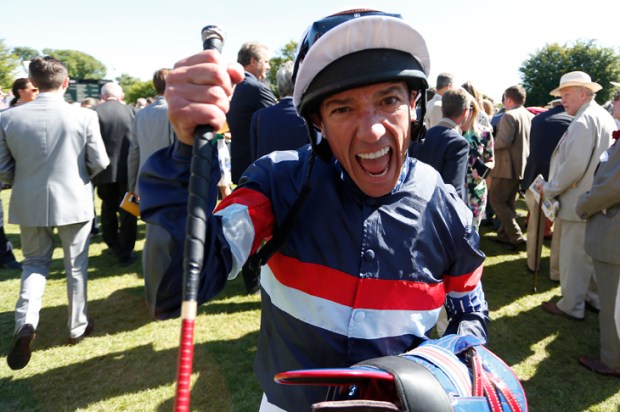
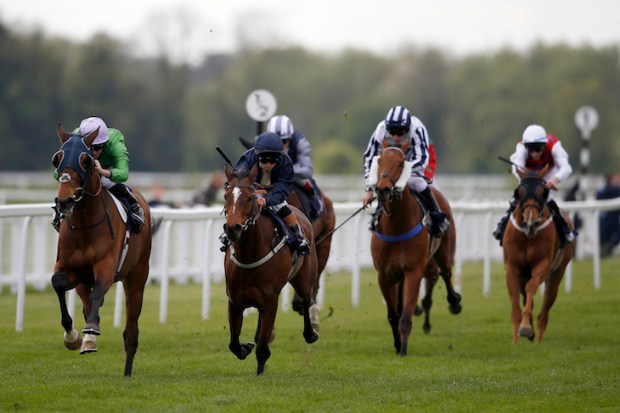
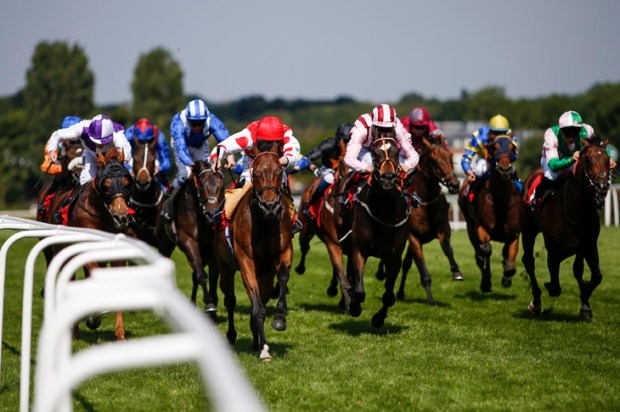
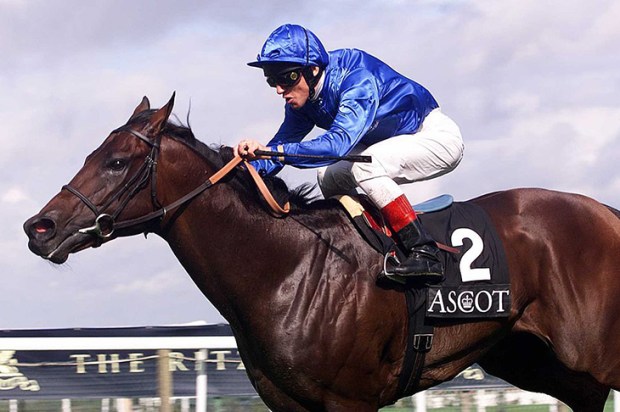
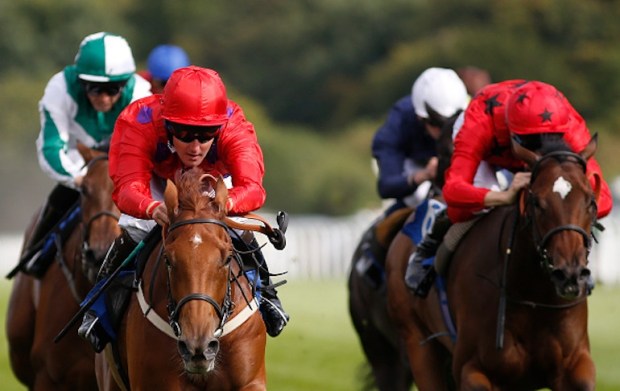






Comments
Don't miss out
Join the conversation with other Spectator Australia readers. Subscribe to leave a comment.
SUBSCRIBEAlready a subscriber? Log in